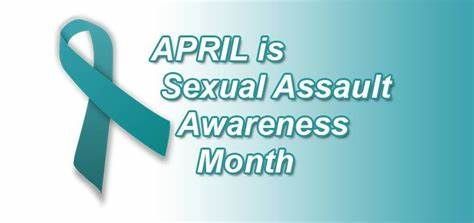Winter Turns into Spring - The Blog



Child Sexual Abuse - When the Therapists got it Wrong
This week I am sharing my experience of being diagnosed with Borderline Personality Disorder and being referred to Mentalization Based Therapy, where I was told I didnt want to get better as I wasn't ready to go back to work. I was re-traumatised. They didnt want to talk about Child Sexual Abuse. They just wanted to fix my bad behaviour.

How does MBT relate to BPD (EUPD)?
I was told it was about feeling, recognising and monitoring my feelings and emotions (instead of jumping into conclusion) and this was done through group discussion observed by the therapists. The first few weeks weren’t even therapy but a short course on BPD and MBT. To be honest, I didn’t retain much of it. I think I was in too much pain emotionally to concentrate.
The months prior starting MBT had been very painful and very dark: my latest toxic relationship ended when I was just about to move in with my then fiancé. He wasn’t sure he wanted to do this anymore, in fact, he had found another woman. Soon after, I was made homeless and was put into care for a year. My daughter moved in with her Father. Unknown to me at the time, this breakup (and everything else that happened at the time) brought up a lot of trauma and I experienced such intense emotional flashbacks and so much pain, I wanted to die. I isolated myself, overdosed a few times (I ended up in A&E after one of them) I started to become obsessive over my ex. I cut myself. I stopped eating. I was even stealing small items in shops. To an outsider, yes, my behaviour may have seemed erratic and out of control but, the truth was: I was in pain.
The MBT entailed weekly group therapy and individual therapy, fortnightly. As the sessions progressed, it became clear the therapists were getting frustrated with me. My new housing situation was bad: I was bullied by my carer, which added to my distress. I was often asked: “Why don’t you just get a job and get yourself out of there, instead of waiting for the council to sort you out?” I reminded them I was referred to this program after having lost my relationship, losing all my savings and becoming homeless. There was no compasssion and no understanding of my situation. Obviously if I've had the mental and emotional capacity to look for a job, get one and save enough money to secure a flat, I wouldn't have been in therapy in the first place.
The length of this therapy was a year and a half. I was encouraged to set goals. Obviously, getting my own home was one of them. The other was to volunteer somewhere, which I did but wasn’t able to stick to: I wasn’t well enough. I had nothing to give.
Once I was finally moved in my own supported housing accommodation, my individual therapist was eager for me to find a job, not a volunteer position but a full-time job. Unfortunately, I re-experienced a very traumatic childhood moment, which send me in total distress again. I was in a constant state of shock. I stopped eating and was dissociating. I wanted to talk about it in therapy but it was all dismissed: “We don’t talk about the past.” I was asked if it was helpful for me to experienced this flashback as if I had any control other it. While discussing my goals, I came to the conclusion it was best for me to wait to apply for any jobs. My individual therapist reminded me I only had 2 months left of MBT and claimed I just didn’t want to get better. “Do you want to get better, Sylvie? Do you?” I left that session thinking maybe my mother was right: I was lazy and useless. I wanted to cut myself. I wanted to die. I didn’t act on my distressing thoughts as I was supported and heard by my friends from group. Soon after, I left the program. I only had a month left by this time but, for my sanity, I had to leave.
It became clear to me MBT might not have been the right therapy for me and that, maybe, I wasn’t suffering from BPD (EUPD) but from Post Traumatic Stress Disorder - PTSD, more specifically, Complex Post Traumatic Stress Disorder/ C-PTSD and, therefore, needed a different approach, where I could discuss my CSA trauma, my past. I even looked at what else was available in IPTT. There were Trauma therapy as well as a survivors group therapy. I talked about this to the therapists but, I wasn’t heard. What did I know? I was seen as a difficult person who had problems with authority figures, so it said in the written report they send to my GP. They even refused to help my Support Worker with my benefit applications. My Support Worker was surprised how unhelpful they were: “In 10 years doing this job, I have never come across professionals not wanting to help their patients!”
When I approached the person who referred me to MBT to complain about the therapists’ treatment, I was told therapists are only human and therapy is very difficult. I had to repeat myself: “I know therapy isn’t easy as it brings a lot of things up but, it isn’t the therapy that is the problem: the therapists who are dismissing my experience and judge me as difficult and unwilling to get better are the problem.” Everything I said fell into dead ears. Again, I felt unheard. I wasn’t offered an alternative therapy.
Here is what I don’t understand:
Very Well Mind says“In this therapy (MBT), the therapist will focus on the present rather than the past and will work with you to enhance your emotional recognition and connection.”
Knowing BPD is mostly caused by childhood traumatic experiences, why only focusing on addressing “problematic behaviour “without trying to even understand the painful causes? I am sure MBT has its place but, I think the focus needs to be on what happened to the patient rather than using the approach of “What is wrong with you?” and “We need to fix you.”
It isn’t right either to judged people suffering from BPD (or any other Personality Disorders) as out of control, difficult and dangerous individuals. I will go as far as saying that, for most of mental health illnesses, treatment needs to be person centred because everybody is different in dealing with childhood trauma (or any other difficulties impacting someone’s mental health)
• Depression
• Anxiety
• Hypervigilance/ hypersensitivity
• Difficulties recognising and managing emotions
• Chronic feeling of emptiness/ loneliness
• Addictions
• Self- harming/ suicidal ideation
• Low self esteem
• Chronic feelings of guilt and shame.
What are the differences?



